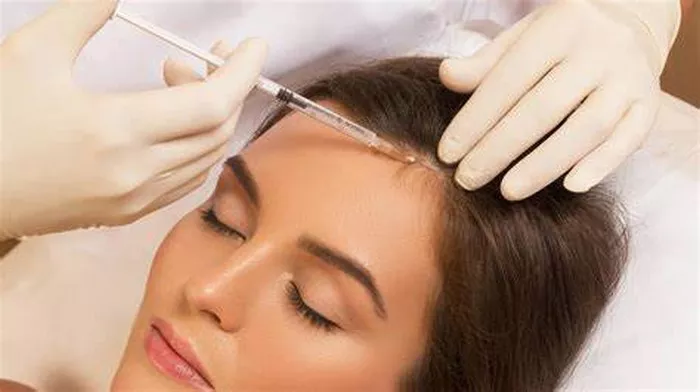Hair transplantation is a popular solution for individuals seeking to address hair loss and achieve a fuller head of hair. While this procedure has a high success rate, it is not without its potential pitfalls. Understanding the reasons why hair transplants might fail can help patients set realistic expectations and take steps to mitigate risks. This article explores 6 common reasons for hair transplant failure, providing insights into the complexities of this cosmetic surgery.
1. Poor Candidate Selection
Inadequate Donor Area
One of the primary reasons for hair transplant failure is the selection of patients with inadequate donor hair. The success of a hair transplant largely depends on the availability of healthy hair follicles from the donor area, typically the back or sides of the head. If the donor area lacks sufficient density or quality, the transplanted hair may not provide the desired coverage or longevity.
Unrealistic Expectations
Patients with unrealistic expectations about the outcomes of a hair transplant are more likely to be dissatisfied with the results. Hair transplants can improve hair density and appearance but cannot restore the hair to its original state. Patients must have a clear understanding of what the procedure can and cannot achieve.
2. Surgical Technique and Skill
Inexperienced Surgeon
The skill and experience of the surgeon play a crucial role in the success of a hair transplant. Inexperienced or poorly trained surgeons may not perform the procedure correctly, leading to poor graft survival, unnatural hairlines, and unsatisfactory results. It is essential for patients to choose a surgeon with a proven track record in hair transplantation.
Outdated Techniques
The techniques used in hair transplantation have evolved significantly over the years. Modern methods, such as Follicular Unit Extraction (FUE) and Follicular Unit Transplantation (FUT), offer better results compared to older techniques. Using outdated methods can result in a higher rate of graft failure and less natural-looking outcomes.
See Also: 6 Reasons Hair Transplants Are Permanent
3. Poor Post-Operative Care
Inadequate Aftercare Instructions
Post-operative care is critical to the success of a hair transplant. Patients must follow their surgeon’s aftercare instructions meticulously to ensure proper healing and graft survival. Failure to adhere to these guidelines can lead to infections, graft displacement, and poor overall results.
Physical Trauma
Physical trauma to the scalp during the healing process can negatively impact the success of a hair transplant. Patients must avoid activities that can cause injury to the grafted area, such as vigorous exercise, scratching, or wearing tight hats. Even minor trauma can disrupt the delicate process of graft anchoring and growth.
4. Medical Conditions
Scalp Conditions
Certain scalp conditions, such as psoriasis, seborrheic dermatitis, or severe dandruff, can affect the outcome of a hair transplant. These conditions can cause inflammation and irritation, hindering the healing process and reducing graft survival rates. It is crucial for patients to address any underlying scalp conditions before undergoing a hair transplant.
Autoimmune Disorders
Autoimmune disorders, such as alopecia areata, can pose significant challenges to the success of a hair transplant. In these cases, the body’s immune system attacks hair follicles, leading to patchy hair loss. Hair transplants in patients with autoimmune disorders have a higher risk of failure due to the ongoing immune response against the transplanted follicles.
5. Inadequate Blood Supply
Compromised Blood Flow
A successful hair transplant relies on the establishment of a healthy blood supply to the transplanted grafts. In some cases, compromised blood flow to the scalp can result in graft failure. Factors such as smoking, previous scalp surgeries, or conditions that affect blood circulation can impede the development of a robust blood supply, leading to poor graft survival.
Vascular Health
The overall vascular health of the patient is also a determining factor in hair transplant success. Conditions like diabetes, hypertension, or cardiovascular diseases can negatively impact blood flow and healing, increasing the risk of transplant failure. Patients with these conditions must manage them effectively before undergoing a hair transplant.
6. Graft Handling and Placement
Graft Dehydration
During the hair transplant procedure, the handling of grafts is critical. Grafts are delicate and can easily become dehydrated if not handled properly. Dehydrated grafts are less likely to survive the transplantation process, resulting in poor hair growth. Surgeons must ensure that grafts are kept in optimal conditions throughout the procedure.
Incorrect Graft Placement
The placement of grafts also plays a significant role in the success of a hair transplant. Incorrect graft placement can lead to unnatural hair growth patterns and poor aesthetics. Additionally, improper placement can cause grafts to be too close together or too far apart, affecting the overall density and appearance of the transplanted hair.
Conclusion
Hair transplantation is a complex procedure with many variables that can influence its success. Poor candidate selection, surgical technique, post-operative care, medical conditions, blood supply issues, and graft handling are some of the primary reasons why hair transplants might fail. By understanding these factors, patients can make informed decisions and take proactive steps to improve their chances of a successful outcome. Choosing an experienced surgeon, following aftercare instructions, and addressing underlying medical conditions are essential steps in ensuring the best possible results from a hair transplant.
Related topics:

